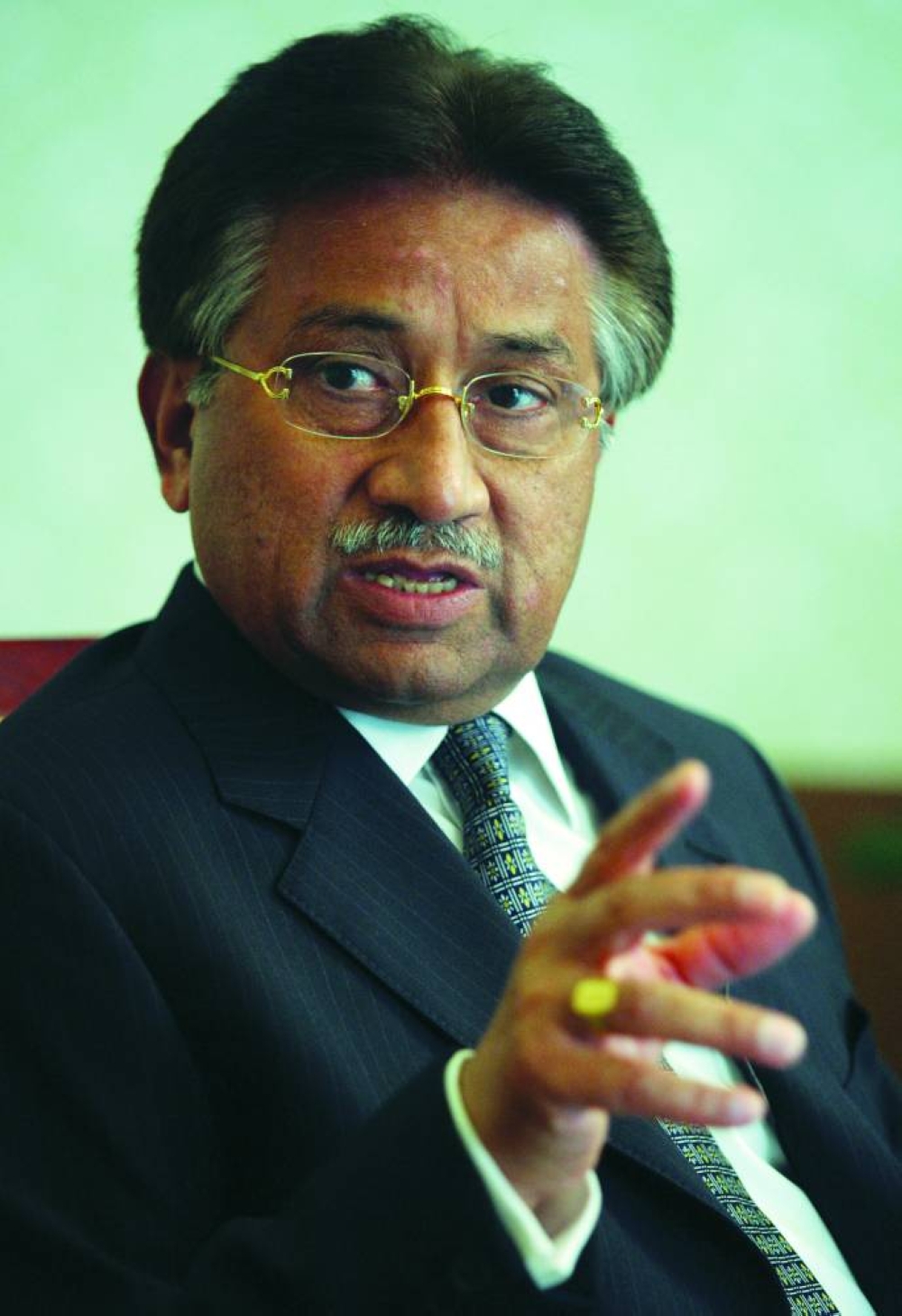Pakistan’s former president Pervez Musharraf, a key US ally in the campaign against Al Qaeda following the militant group’s September 11, 2001 attacks, died in Dubai yesterday after a prolonged illness.
He was 79.
Musharraf, a former four-star general, died in hospital in Dubai, where he was living in self-imposed exile since 2016.
His body will be flown to Pakistan for burial today, Geo News reported.
“I offer my condolences to the family of General Pervez Musharraf,” tweeted Prime Minister Shehbaz Sharif. “May the departed soul rest in peace.”
Musharraf was suffering from a rare organ disease called amyloidosis, and was admitted to hospital last year after he became critically ill, his family said.
He was credited with attracting foreign investment to Pakistan, which saw the strongest economic growth in nearly 30 years during his rule, and he enjoyed the support of the military and Pakistanis who backed his crackdown against militant groups.
Musharraf seized power in a 1999 bloodless coup and was acting simultaneously as Pakistan’s army chief, chief executive, and president when the 9/11 attacks on the United States took place.
Many Pakistanis handed out sweets to celebrate his 1999 coup, which ended a corrupt and economically disastrous administration, and soon turned on the tap of foreign aid.
The general twice suspended the constitution and was accused of rigging a referendum shoring up his power, as well as rampant rights abuses including rounding up opponents during his nearly nine-year rule, which included arresting rivals such as current prime minister Sharif and the imposing of an almost six-week long state of emergency in which he suspended the constitution and censored the media.
“He failed to build on his early popularity to effect sustainable economic and political reforms and became a captive of military power and vested interests,” said Shuja Nawaz, author of several books on Pakistan’s military and a fellow at US think-tank Atlantic Council.
Musharraf joined what Washington called its “war on terror”, giving US forces ground and air access into landlocked Afghanistan to chase down Al Qaeda militants.
This decision brought the conflict to Pakistan’s doorstep, with an explosion in militancy in the northwestern regions bordering Afghanistan, and made Musharraf a target for militant groups.
He survived at least four assassination attempts.
In a 2006 memoir, Musharraf said he “saved” Pakistan by joining the campaign against Al Qaeda.
He also successfully lobbied the administration of former US president George W Bush to pour money into the nuclear-armed nation’s military, which remains one of the most powerful in South Asia.
Domestically, Musharraf’s iron-fist rule created turmoil.
The state of emergency in 2007 aimed to quell protests triggered by a clampdown on the judiciary and the media.
That same year, his government was criticised for not providing enough security ahead of the assassination by the Pakistani Taliban of former prime minister Benazir Bhutto, a political rival killed while on campaign for national elections.
The Musharraf-backed party lost the vote, held months later in 2008.
Facing impeachment by parliament, he resigned and fled to London.
Musharraf returned to Pakistan in 2013 to run for parliament but was immediately disqualified.
That election was won by Nawaz Sharif – the man he deposed in 1999, and brother to the current President Shehbaz.
He left for Dubai in 2016, and was sentenced to death in absentia three years later for the state of emergency.
The verdict was later overturned.
“He was neither a good man nor a bad man,” said 45-year-old gem merchant Mohamed Ayaz in the northwestern provincial capital of Peshawar. “Thousands died in terrorist attacks but business boomed during his tenure. He made graveyards and at the same time built housing developments.”
One of Musharraf’s former political aides told Geo News that he would either be buried in Karachi, his family’s hometown, or Rawalpindi, home to the army’s headquarters.
International
Former Pakistan president Musharraf dead
Pakistan’s former president Pervez Musharraf, a key US ally in the campaign against Al Qaeda following the militant group’s September 11, 2001 attacks, died in Dubai yesterday after a prolonged illness.

Late former president Pervez Musharraf
